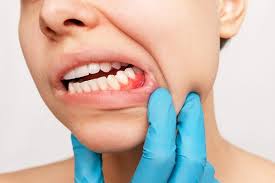 Oral pathology is a subdivision of dentistry that deals with the study, disease detection and treatment of the mouth, jaw and other oral structures. It includes a range of conditions, from minor issues like canker sores to more serious disorders such as oral cancer. In order to diagnose oral diseases properly, oral pathologists use different approaches like any kind of clinical tests, imaging (including using X-ray or CT-scan), microscopic examination of any kind of tissue sample. This region has tremendous significance as far as the diagnosis of life threatening disorders like oral cancer, detection of infections, cyst or inflammations are concerned.
Oral pathology is a subdivision of dentistry that deals with the study, disease detection and treatment of the mouth, jaw and other oral structures. It includes a range of conditions, from minor issues like canker sores to more serious disorders such as oral cancer. In order to diagnose oral diseases properly, oral pathologists use different approaches like any kind of clinical tests, imaging (including using X-ray or CT-scan), microscopic examination of any kind of tissue sample. This region has tremendous significance as far as the diagnosis of life threatening disorders like oral cancer, detection of infections, cyst or inflammations are concerned.
What Conditions Does Oral Pathology Cover?
Oral pathology is a broad term that encompasses disorders that affect the oral cavity, the jaws, and the surrounding tissues. These physical conditions can range from mild to severe, and it’s important to recognize and identify them early.
Common Diseases
The ones include non-cancerous such as canker sores (aphthous ulcers), oral infections which can be fungal or bacterial and cysts growing in the soft tissues or jawbones. They may not be serious but they are painful and the medications may result in complications if they are not treated.
Serious Conditions
One of the most serious problems that examined by pathologists is oral cancer. Even other precancerous conditions , such as leukoplakia or erythroplakia, seem harmless at first glance but might turn into a disease given enough time unless an early solution is provided.
Inflammatory and Autoimmune Disorders
Such conditions as lichen planus, pemphigus vulgaris, and Sjogren syndrome are researched and treated in the field of oral pathology. These result in irreversible pain, tensions as well as injuries to oral tissues.
How Oral Diseases Are Diagnosed
Oral diseases cannot be examined thoroughly using a single technique, therefore, a combination of techniques should be used in order to obtain a precise diagnosis and build up a treatment plan.
Clinical Examination
The initial process carried out by oral pathologists is an in-depth visual and physical examination of the jaw, tongue, the gums, and the mouth. They evaluate swellings, ulcers or other abnormal growths.
Radiographic Imaging
The problems that are below the surface, e.g. cysts in the jawbone, bone loss, and tumors are identified by diagnostic tools, e.g. X-rays, CT scans, or MRI scans.
Microscopic Analysis (Oral Histopathology)
In other instances, a small piece of tissue (biopsy) is collected and looked at under a microscope. This enables the oral pathologist to validate the existence of diseases such as cancer, infections, or inflammatory diseases at cell level.
Role of an Oral Pathologist
An oral pathologist is a dental specialist who is well trained in the diagnosis and study of illnesses that involve the mouth, jaw, and their environs. They are essential in both clinical and laboratory settings. Oral pathologists determine the disease cause, identify abnormalities, and give detailed reports on the cause of the disease. The other significant percentage of their task is to observe the biopsy samples through the assistance of a microscope in order to diagnose many disorders such as infections, cysts, and oral cancer.
They often work closely with other medical professionals such as dentists, oral surgeons, oncologists, and ENT specialists especially when managing complex or cancer-related cases.
Oral pathologists do not always play direct roles in treatment of patients, but their diagnostic accuracies form a vital part in laying down efficient treatment strategies. This is so because by establishing the specific nature of the condition, it can be assured that a patient is given proper care by the right specialist which significantly contributes to increasing the health outcome. At BelAir MD Dentist, we have experienced and dedicated oral pathologists who can perform a thorough oral analysis.
Why Oral Pathology is Important
The importance of oral pathology in dental healthcare cannot be overemphasized because it leads to proper diagnosis and early detection of illnesses that would have escalated without being noticed. An oral pathologist has a crucial role in enhancing the outcome of the patients because of their experience in the detection of various conditions. Their work permits more rapid interventions, the treatment plans that are more accurate, and more long-term patient health.
Here’s why oral pathology is so important:
Early Detection of Oral Cancer
Detection of oral cancer at the initial stages is one of the most important roles of oral pathology. The earlier the problem is caught, the better it is possible to save life and increase the possibility of effective therapy.
Accurate Diagnosis of Complex Cases
The symptoms of most oral diseases are similar. Oral pathologists have been trained on how to distinguish these conditions so that patients can be rightly diagnosed and hence not subjected to unnecessary or wrongful treatment.
Improved Treatment and Patient Outcomes
Effective treatment is possible with clear and precise diagnosis as treatment is more targeted. The results of this are less complication, higher speed of recovery along with improved overall health of patients.






